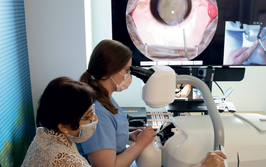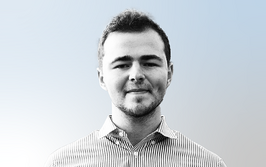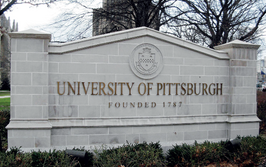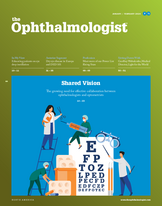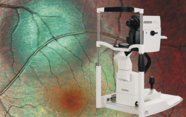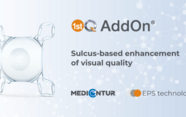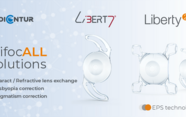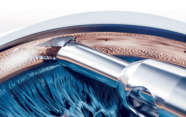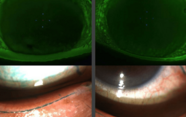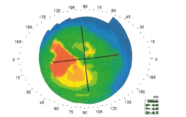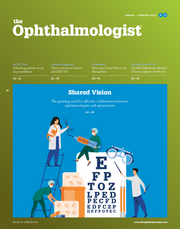From Lifespan to Healthspan
How ophthalmology and overall health are uniquely connected
Julian Upton | | 7 min read | Interview
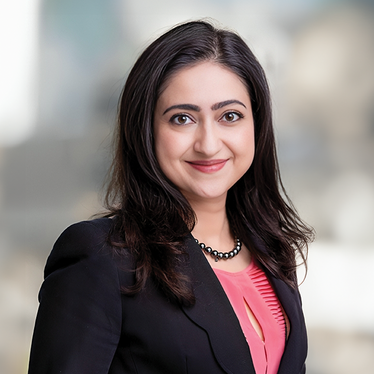
Credit: Image supplied by Sophia Pathai
Riyadh-based ophthalmologist and clinical scientist Sophia Pathai is currently spearheading medicine at the Hevolution Foundation, which recently convened 2,000 people for the first-ever Global Healthspan Summit. The event featured a unique testing experience called Nafetha – a key aspect of which is looking at eye health as a window into overall health.
Here, Pathai tells us how Hevolution is looking to evolve health systems worldwide to be more proactive in promoting the concept of healthspan.
What exactly is the Hevolution Foundation – and what’s your role?
The Hevolution Foundation is a global, non-profit organization that was set up to catalyze the shift from lifespan to healthspan. Lifespan is the number of years lived, and we all want to live to a ripe old age. But what I think about as a physician and an ophthalmologist is how we can add good health to those years – that’s healthspan. In many countries around the world, there is a significant gap between lifespan and healthspan. Our focus is addressing that gap – expanding healthy lifespan for all. Could it be through extending and expanding access to drugs and therapeutics in the field? Or by speeding up access to these treatments?
How does eye health fit into this broader concept?
As an ophthalmologist by training, I’ve always felt that age-related disease is the ethos of ophthalmology. Even as a registrar back in London, I saw that every patient who came in had cataracts, glaucoma, age-related macular degeneration (AMD), early onset presbyopia. Age-related disease is uniquely tied to ophthalmology. I call ophthalmology and ocular disorders a facet of chronic disease. Everybody knows someone who has an eye problem, and so if we can address this massive risk factor, which is age-related disease in ophthalmology, we have an opportunity to address healthspan. For me, healthspan and ophthalmology are uniquely connected.
Can you explain the concept of Nafetha and its role in assessing overall health, including eye health?
Nafetha is Arabic for window. We designed this campaign as a window to your health. I’m British but I’ve lived in Riyadh, Saudi Arabia, for close to 18 months now. One thing I realized very quickly is that people in Riyadh love fashion, they love pop-ups, they love technology. I think the value of being a physician is that we can look outside typical medicine for ideas. So, I thought, why not have a pop-up that showcases what healthspan medicine is at our Global Healthspan Summit, which took place in November last year. We were able to design a temporary pop-up experience, which gave people a window – an insight – into what healthspan is; after all, many people remain somewhat skeptical about what healthspan medicine is when compared with preventative medicine or going to see your family physician or GP.
In this experience, visitors could, ahead of time, use an app to input their data, but not just the kind of data that you would give to your GP – height, weight, age, for example. We asked questions like, “How much do you sleep? What kind of foods do you eat?” We talked about stress, about movement, about feelings of mental or physical stress. I don’t get asked any of these questions when I go to the GP. We want to change the paradigm here and think about even if you’re well, how can you be better?
When the clients went to the pod, they had a one-to-one consultation with a sports nutritionist or physiologist or a dietician, and they underwent what we call point-of-care testing. We were able to bring a new piece of technology that measures cellular stress and defense just through a fingerprint test; it was a big win for us because it showed the firepower of Hevolution to bring new technology to the region. This included state-of-the-art body composition analysis, which shows you where your good muscle is, i.e., where your lean muscle is, where the fat is in your body. It’s a 360-degree view of what’s going on in your body. On the eye health side, we complemented that technology with OCT. Everyone who went through the experience also got an OCT, and that was – pardon the pun – an eye opener, because many people didn’t realize that OCT is noninvasive but still provides a read into the back of the eye.
We anticipated having about 110 people go through these tests, but we had over 200 on a waiting list (we had to close the registration!). So for us, Nafetha, this window into health, proved that there is a desire for people to understand how to optimize their healthspan for the future.
How do you cross boundaries culturally and geographically to get these messages to patients globally?
The unifying way of doing this is through technology; I would say that technology would be the greatest enabler, facilitating the intersection of all these different ideas about health and also conveying them to the mass population. The most popular channel here is YouTube; and one of the most downloaded or watched videos in the MENA region last year was a gamer who didn’t speak about games, but about his experience with depression. We know that mental health is obviously a key driver of healthspan as well.
I love being in Saudi Arabia because everything – accessing government services, making health appointments – can be done through your phone. In other parts of the world, we need to promote this use of technology. How can we harness it and bring people to us rather than rely on the outdated mode of having the patient come to us?
The Foundation has committed about $250 million to healthspan. How are those funds divided up among the various projects you are promoting?
Our mandate is broad, and the way we deploy capital is similarly broad. Much of the funding has been for grants to build on this emerging field of geroscience, making sure that investigators across the world have the capital to continue research into this field – whether they are in the US or in the Kingdom of Saudi Arabia.
We also have an investment arm looking at therapeutics and platforms. We’re currently collaborating with over 25 institutes – from the American Federation for Aging Research in the US to the King Faisal Specialist Hospital here in Riyadh. I think of our capital as a convenor to influence and build relationships.
As I said, our key mandate is to catalyze the transformation from lifespan to healthspan. How do we do that? It’s about refocusing the lens from traditional medicine. When I was studying at UCL in the 1990s, I think most of the courses had the word “disease” in them. But I didn't learn anything about stress, movement, nutrition, resilience, sleep. I actually looked at the UCL curriculum for 2024 and there's still very little mention of “health,” it’s still about disease. Part of our mandate is to refocus that curriculum building. Can we create healthspan medicine as a specialty that doesn’t exist right now?
And how do we translate the science? The people who receive these grants are going to be looking at pre-clinical or translational models, and we’re trying to help them go from the bench to people – not necessarily the bedside! Whatever discoveries they’re making, a potential therapeutic or a biomarker, we ask if we can bring those to life by offering them as healthspan services.
But we’ve got work to do because there aren’t any endpoints with this approach. And if you can't measure an endpoint, how do you get approved for a drug? As clinician scientists and physicians, we need to work with regulators and market access people to bridge gaps in understanding and help enable access for the future. These are the kind of broad domains that keep my team very busy!
Julian Upton is Group Editor of The Ophthalmologist and The New Optometrist. With 20+ years' experience of the magazine industry, he has covered many facets of science and healthcare.
